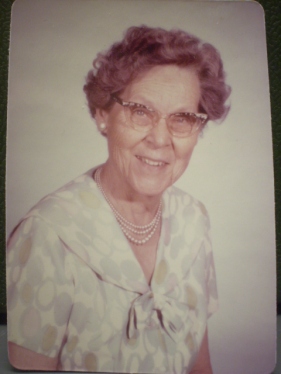Ralph and Roberta Winter were given the option to buy the campus they purchased in Pasadena, California in the late 1970s for the World Mission Center they planned to establish after God gave them the victory following many prayers against a cult that occupied the campus then and also wanted to buy it. They were known as the Church Universal and Triumphant. Roberta received a mailing containing a newspaper clipping from friends of hers in Newberg, Oregon giving her an update about this cult on December 10, 1989.
It is “The Oregonian” newspaper. The title of the article is “Church leader fans fires of fear” and the subtitle reads “Predictions of a New Year’s Eve nuclear attack, stockpiling of guns and environmental issues stir public concern.” In Gardiner, Montana, Elizabeth Clare Prophet’s followers know her as Guru Ma or Mother. She is slender and youthful at 50 with brownish hair. She likes jewelry studded with large gems. The rest of the descriptions of her put her squarely in the suburban yuppie group. Her follows regard her as a messenger who brings divine revelations, and for several months the revelations have been about nuclear war, which Prophet believes is imminent.
Fear of nuclear war is a main reason she moved the world headquarters of her Church Universal and Triumphant to Montana from California in 1986. Several hundred church members followed their leader and also moved. “Prophet, who passes on what she calls ‘dictations’ from a flock of ‘ascended masters’ that include mystics and saints, informed her followers in October that an ascended master called El Morya had delivered an update: ‘If I were you, I would see to it that my preparations were complete by New Year’s Eve.’” Prophet specifies that the Soviets may launch a nuclear attack on the United States on New Year’s Eve. Heeding her warning, church members are preparing for Armageddon by storing dehydrated food and constructing a vast complex of bomb shelters in southwestern Montana’s Paradise Valley, with its magnificent blue sky, rugged mountains and high plains that end at the northern boundary of Yellowstone National Park.
Nonetheless, church watchers fear they are also stockpiling weapons, ammunition and other paramilitary gear. This church believes in a combination of survivalism and theology with New Age teachings, Christian and Eastern beliefs and political conservatism. Local residents, environmentalists and staff at Yellowstone National Park have felt uneasy about the sect since 1981, when the church paid about $7.1 million for a 13,000-acre ranch. The church’s holdings have since expanded to more than 33,000 acres, which means the Church Universal and Triumphant’s Royal Teton Ranch is the second largest private landholding in Park County, Montana.



